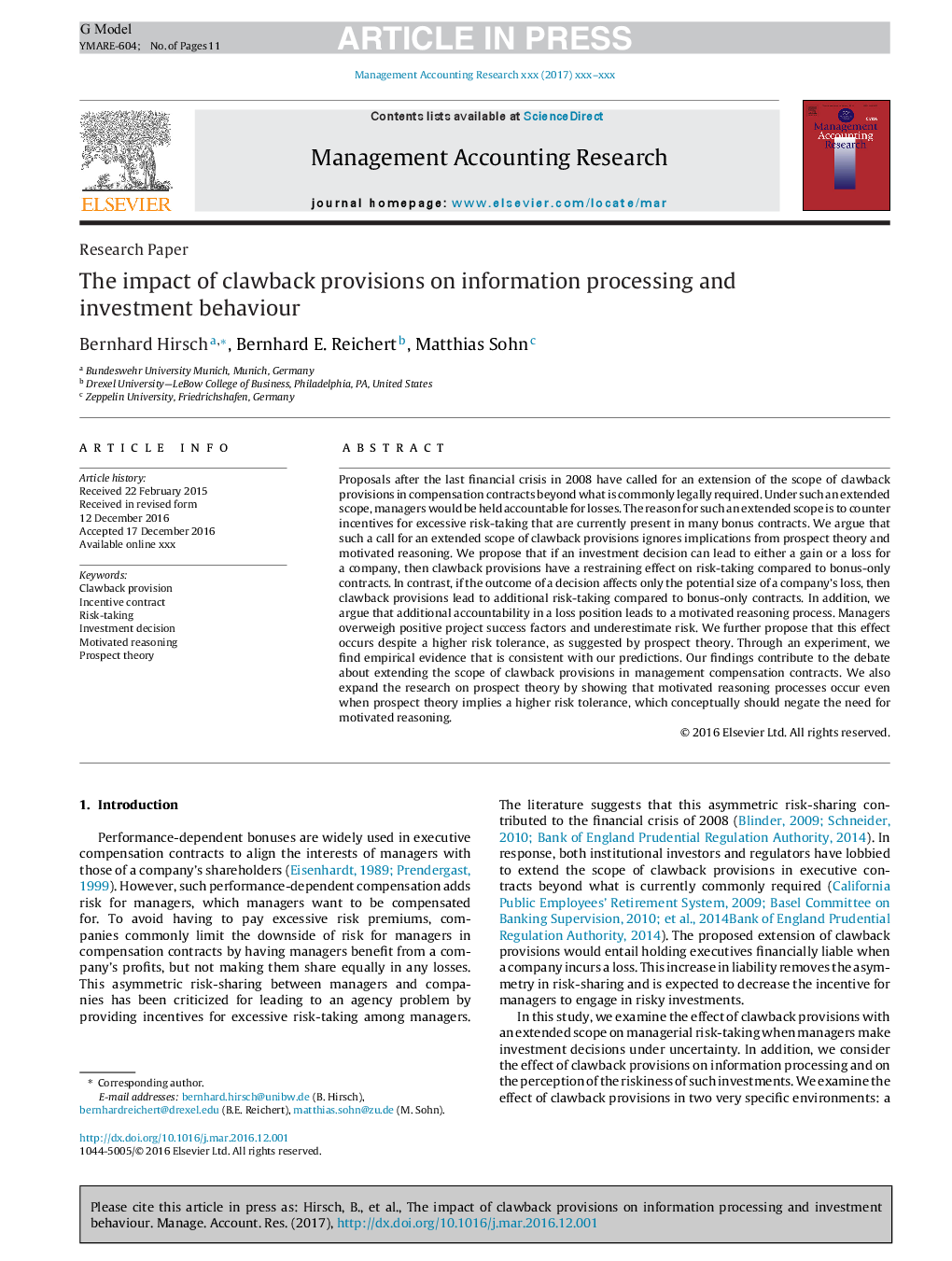ترجمه فارسی عنوان مقاله
تاثیر مقررات نقدی بر پردازش اطلاعات و رفتار سرمایه گذاری
عنوان انگلیسی
The impact of clawback provisions on information processing and investment behaviour
| کد مقاله | سال انتشار | تعداد صفحات مقاله انگلیسی |
|---|---|---|
| 96577 | 2017 | 11 صفحه PDF |
منبع

Publisher : Elsevier - Science Direct (الزویر - ساینس دایرکت)
Journal : Management Accounting Research, Volume 37, December 2017, Pages 1-11
ترجمه کلمات کلیدی
ارائه مراقبت از چاقو، قرارداد مشوق، ریسک پذیری، تصمیم سرمایه گذاری، استدلال انگیزشی نظریه چشم انداز،
کلمات کلیدی انگلیسی
Clawback provision; Incentive contract; Risk-taking; Investment decision; Motivated reasoning; Prospect theory;

